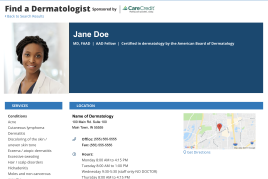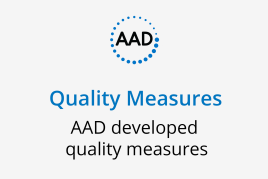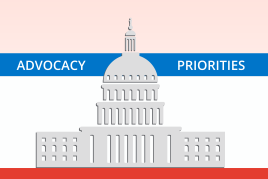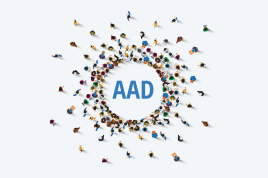To concierge or not concierge, that is the question
 By Warren R. Heymann, MD
By Warren R. Heymann, MDJune 10, 2017
After very long days of difficult patients (diagnostically, therapeutically, and otherwise), insurance denials, prior authorizations, business decisions, MACRA, et cetera, I think of the milkman Tevye from “Fiddler on the Roof,” finally sitting down, and singing “If I Were a Rich Man.” I’ll even spring for a few Powerball lottery tickets when the prize exceeds $400 million ($100 million just doesn’t cut it these days), fantasizing what it would be like to practice without the tribulations of modern health care.
I certainly understand the desire for seeking alternatives that will be best for patient and physician psyche. Another song comes to mind (Mary Hopkin’s “Those Were the Days”) thinking about when I opened my practice more than 30 years ago; pre-computer, with a peg-board system. Patients would pay the fee; get a receipt, and be responsible for sending it to their insurer for reimbursement. No billing company, no denials, no accounts receivable. “Long ago and far away…”
Until the Affordable Care Act is modified or repealed, we all have to figure out how to survive financially and emotionally. I read the article from the June 3rd, 2017 New York Times (“The Doctor is In. Co-Pay? $40,000” by Nelson D. Schwartz) with a mix of emotions ranging from envy to pity.
First the envy — who wouldn’t like to devote as much time as necessary for each patient, without pressure of the clock to meet RVU quotas? Never mind the plush surroundings, hobnobbing with the elite, and calling yourself an “asset manager.”
There are several aspects of the concierge approach that I find disconcerting. Such physicians often say that they will help arrange for referrals to specialists, return patient phone calls, have expedited appointments for urgent problems, and advocate for their patients. Isn’t being a patient advocate the job of every physician? I do those tasks now, even for our Medicaid patients. I suppose that makes me a concierge physician at a terrific price.
In the early 1960s, when my late brother Andrew was suffering from Crohn disease (undiagnosed at the time), my parents were able to arrange for him to see a renowned gastroenterologist at Mt. Sinai Hospital in New York. Had that been a concierge practice, he never would have been seen.
There are other issues (to be the subject of future commentaries). Interestingly, being a VIP may be detrimental to your health. According to Rafelson and Rajput: “the literature argues that this ‘VIP syndrome” pressures the clinician to deviate from best practice guidelines and thus offer lower quality care.” (1)
Welch and Fisher, have observed that the combined incidence of breast cancer, prostate cancer, thyroid cancer and melanoma, has been rising in all US counties, but there has hasn’t been a parallel increase in cancer specific mortality — suggesting that overdiagnosis may be occurring. They found that high-income counties have experienced markedly greater increases in incidence of the cancers than low-income counties since 1975. The reasons for this are not clear. “Affluent people may expect, and demand, more testing — enabled by their greater ability to pay. Alternatively, the fee-for-service health systems in those markets may be the driving factor: systems serving relatively wealthy and healthy populations may see offering more testing as a good way to attract consumers, produce more patients, and increase business. It’s also possible that both explanations are at work, creating a mutually reinforcing cycle that promotes testing as the path to health.” (2)
We make our decisions based upon what we believe is right. One of the major conundrums is thinking about the effect of concierge practice on society at large. If enough physicians go the concierge route, that means that there will be fewer doctors to take care of the masses. I was heartened, at least, by the following passage from the New York Times article: “But for all their confidence about the advantages of their particular brand of concierge medicine, these physicians are quick to admit they struggle with the ethical issues of providing elite treatment for a wealthy few, even as tens of millions of American struggle to afford basic care.” At least they’re thinking about it.
Years ago, I wrote about reading Maimonides Prayer for the Physician every time I return to work from vacation. I still do. A passage from the prayer follows:
Deem me worthy of seeing in the sufferer who seeks my advice — a person — neither rich nor poor. Friend or foe, good man or bad, of a man in distress, show me only the man.
I’m not saying that being a concierge physician is wrong. As I stated earlier, I’m somewhat jealous of those who can pull it off. For me, though, it would not be right. I’m just as content (maybe even happier sometimes) helping the neediest in society as I am CEOs of international corporations. I am truly fortunate to be able to do both. I hope that our society can ultimately figure out how to give every man, woman, and child the best of health care that every human being deserves.
1. Rafelson WM, Rajput V. A piece of my mind. VIP and UIP. JAMA 2012; 308: 579-80.
2. Welch HG, Fisher ES. Income and cancer overdiagnosis – When too much care is harmful. N Engl J Med 2017; 376: 2208-9.
3. Heymann WR. Maimonides and midcareer. Arch Dermatol 2003; 139: 577-8.
All content found on Dermatology World Insights and Inquiries, including: text, images, video, audio, or other formats, were created for informational purposes only. The content represents the opinions of the authors and should not be interpreted as the official AAD position on any topic addressed. It is not intended to be a substitute for professional medical advice, diagnosis, or treatment.
DW Insights and Inquiries archive
Explore hundreds of Dermatology World Insights and Inquiries articles by clinical area, specific condition, or medical journal source.
All content solely developed by the American Academy of Dermatology
The American Academy of Dermatology gratefully acknowledges the support from Incyte Dermatology.
 Make it easy for patients to find you.
Make it easy for patients to find you.
 Meet the new AAD
Meet the new AAD
 2022 AAD VMX
2022 AAD VMX
 AAD Learning Center
AAD Learning Center
 Need coding help?
Need coding help?
 Reduce burdens
Reduce burdens
 Clinical guidelines
Clinical guidelines
 Why use AAD measures?
Why use AAD measures?
 Latest news
Latest news
 New insights
New insights
 Combat burnout
Combat burnout
 Joining or selling a practice?
Joining or selling a practice?
 Advocacy priorities
Advocacy priorities
 Promote the specialty
Promote the specialty

